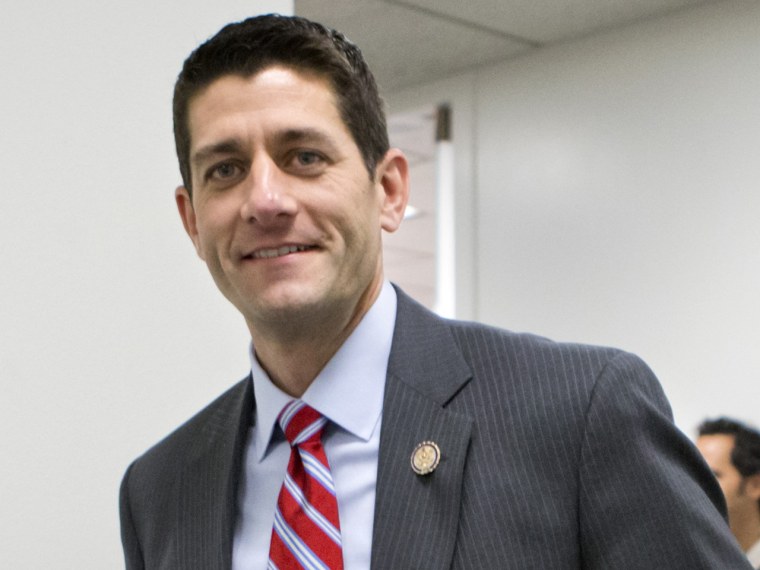Whether austerity has “worked” depends on its intended function. Now that the Bureau of Economic Analysis has reported a 0.1% drop in GDP during the last quarter—fueled largely by declining government spending—we can probably dispense with the myth that sharp spending cuts encourage growth or reduce the country's public debt-to-GDP ratio.
Some of the other, less charitable explanations for austerity fever are by now pretty well-trodden. It could be a fundamentally market utopian project, driven by the belief that smaller government and more market logic is always better. Or Washington's enthusiasm for spending cuts could be the product of craven self-interest, steered and financed by plutocrats who see investment opportunities where state institutions become privatized.
Most likely, a full description of austerity politics' influence would have to take both market utopianism and oligarchic self-interest into account, plus a smidgen of basic economic illiteracy. However, the national GOP also has another, often ignored, incentive for championing spending cuts: It makes it easier for state-level institutions to dismantle the Democrats' organizing apparatus.
Unions play a crucial role in that apparatus. In fact, labor support may very well have made the difference for President Obama's re-election campaign in Ohio, a crucial swing state. Thus, when state Republican parties in Wisconsin and Michigan fought to weaken the power of unions, many correctly regarded their exertions as—among other things—transparent attempts at dismembering the Democratic Party's power base.
Notably, Wisconsin's Republican Gov. Scott Walker justified his anti-collective bargaining attack on the grounds that a massive budget shortfall had made it necessary (the fact that Walker, in fact "ginned up" the deficit is neither here nor there). Also notable: the governor specifically targeted public sector unions. Government jobs may well be the last true fortress for these Democratic-leaning organizations; according to the latest statistics, 35.9% of public employees are unionized, compared to 11.3% of private employees.
Even in states where their collective bargaining rights remain intact, public sector workers have taken a serious blow from contractionary fiscal policy. In the last third of 2012 alone, 80,000 government employees lost their jobs—and since 2009, 300,000 education professionals have been laid off. Some of those layoffs can be blamed on the 2008 financial collapse, which inflicted massive budget shortfalls on state and local governments, forcing them to make severe cuts.
Federal aid to the states helped defray some of the damage. According to George Mason University professor John Peterson, the 26% of all state and local spending in 2010 came from federal grants totaling $654 billion. Those grants came from provisions of the American Reinvestment and Recovery Act which soon expired—meaning that, the following year, federal transfers plummeted down to $60 billion. State governors are now steeling themselves for further aid cuts. No doubt some Republican governors will use those cuts as further justification to lay off unionized workers, thereby further weakening their Democratic opponents.
The national Republican Party almost surely understands the state-level political dynamics which inevitably lead to further public sector firings. After all, unions certainly get it, which is why they've poured so many resources into resisting cuts to federal aid. Republicans' appreciation of the interplay between state and federal politics would also explain why the most sustained assaults on public employee unions have occurred in potential swing states: Michigan, Wisconsin, Indiana, and so on.
So while Republicans have plenty of reasons to support cuts in state aid, the structural advantage it gives them over Democrats should be ignored. In that sense, the political attack on public sector unions is not far removed from the attempts made at voter suppression in 2012. In both cases, the Grand Old Party attempted to restrict the rights of a core Democratic constituency in order to ensure their own electoral victory. At least when it came to voter suppression, Republican were a bit more transparent about their motives.
